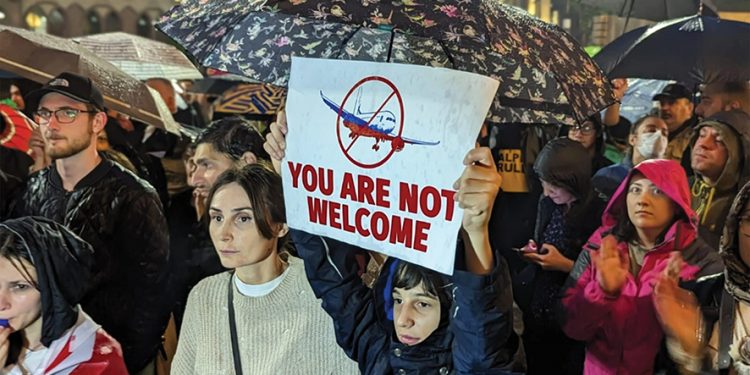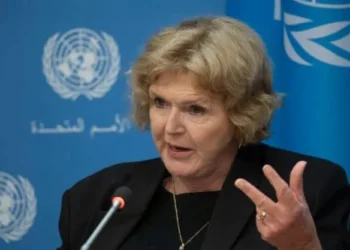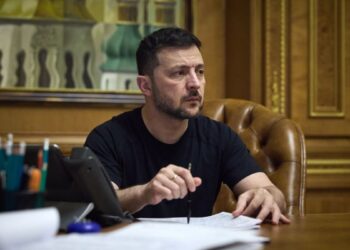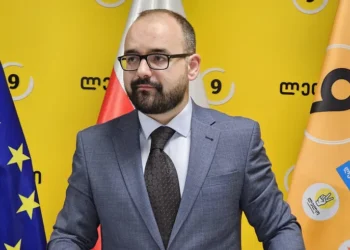It’s of no surprise that popular opinion of the Russian state has been abysmally low, especially since the February 2022 invasion of Ukraine. Georgians in particular have had more than enough reasons to despise their northern neighbor. Over a century of abuse, ethnic targeting, and forced relocations have soured relations in the eyes of many. However, the recent uptick in anti-Russian sentiment has drawn heavy criticism from some, who call it xenophobic and unwarranted.
More recently, the resumption of flights, the removal of the visa regime in Russia, and anti-Europe/pro-Russian actions of the ruling party have infuriated much of the nation. Demonstrators in front of Parliament have demanded a cessation to the flights, angered by the government’s policy of appeasement towards the Kremlin and the unchecked influx of Russian citizens, many of whom are apathetic at best towards the “special military operation” in Ukraine, let alone Russia’s past transgressions against Georgia.
All of this tension came to a head when, by way of an investigation by Georgian journalists, it was uncovered that some of Russia’s elite were caught in the country. Despite being subject to sanctions from the West, Georgian authorities seem to have made an exception for family and friends of the Lavrov family. Daughter of Russian Foreign Minister Sergei Lavrov, along with others, were allowed to enter the country and remain undetected.
However, rather than demand their expulsion, the ruling party defended them with legions of the nation’s law enforcement and lambasted the protestors. 16 of their number were arrested, but what stuck observers the most was the behavior of the Ministry of Internal Affairs following the arrests. The arrestees were denied visitation by their legal counsel or by human rights officials,
Georgian President Salome Zurabishvili ensured that the sanctioned individuals and their party had left the country, and additionally demanded that the MIA redouble its efforts to ensure sanctioned individuals were not entering the country. While lauded by many, there remained those that stood opposed to developing relations with the nation’s northern neighbor. For the ruling party and its fervent supporters, it Is xenophobic, an economic burden, and to some even racist.

Additionally, according to Georgian Dream chairman Irakli Kobakhidze, it is a violation of human rights to sanction one’s family members, despite overt evidence that multiple members of the Lavrov family in Georgia were intimately involved in Russia’s pro-war economic machine. “A family member cannot be sanctioned, this approach is grossly contrary to human rights standards,” he claimed. “I am a human rights specialist, I studied this field in Germany. Sanctioning a family member directly contradicts human rights standards.”
In his standard argumentative tone, he continued to say that sanctioning these people and disrupting a wedding was not congruent to the nation’s values. While it’s unclear what version of human rights Kobakhidze is referring to in his statements, the European Union, along with multiple other nations, have uniformly agreed that these individuals deserve no harbor. To push against that is to side with the Kremlin, simply put.
Others from around the Georgian Dream’s proverbial fan club joined in to not only laud the efforts of the government to kowtow to the Kremlin, but also lash out against the opposition. One notable foreign figure, who chairs one of the country’s business associations, spread pictures of protestors with a caption calling them “racists in the rain”. This individual continued, even labeling a sitting MP as a racist.
The justification for this individual’s behavior, as stated by them directly, was that Georgia somehow needs the tourism from Russia to survive. Additionally, the person admits that “I have some challenges in distinguishing between racism, xenophobia and to some extent issues around skin color. My position is that hating people simply because of where they were born, in this case Russia, is bad and sometimes leads to terrible actions.”
This quote is a microcosm of the misunderstanding of what drives Georgians, among others, to resist the Kremlin. While many may see the opposition to the resumption of flights with Russia, the visitation of sanctioned individuals, and increasing economic dependence as the aforementioned racism xenophobia, this is far from the truth.
A divorce with Russia is not based on targeting the average Russian citizen, and certainly not because of their Slavic race or foreign status in Georgia. This is rooted in centuries of mistreatment by the Kremlin, with the complicit support of its people and at the tip of the bayonet of its military. Georgians today still remember the atrocities in Abkhazia, South Ossetia, and Gori that were all at the hands of the Russian state.
For the nation to move closer to Europe, it must move farther away or even disconnect from Russia entirely. This has been true largely for a decade, but is even more confirmed following Russia’s invasion of Ukraine. The prospects of community with the Russian state are, for the foreseeable future, not plausible.
There is no more middle ground, and there are no more states able to play both sides for some benefit. Dollars and Euros from tourism, trade, investment, and aid can come from a myriad of others in the West. The people’s righteous indignation is more than justified in its ire of the direction the government seems to desire. Ukrainian Foreign Ministry spokesman Oleg Nikolenko framed this by stating, “in 2008, Russian planes arrived in Georgia to bomb civilians. Now they are planning to bomb the European future of Georgians.”
By Michael Godwin














